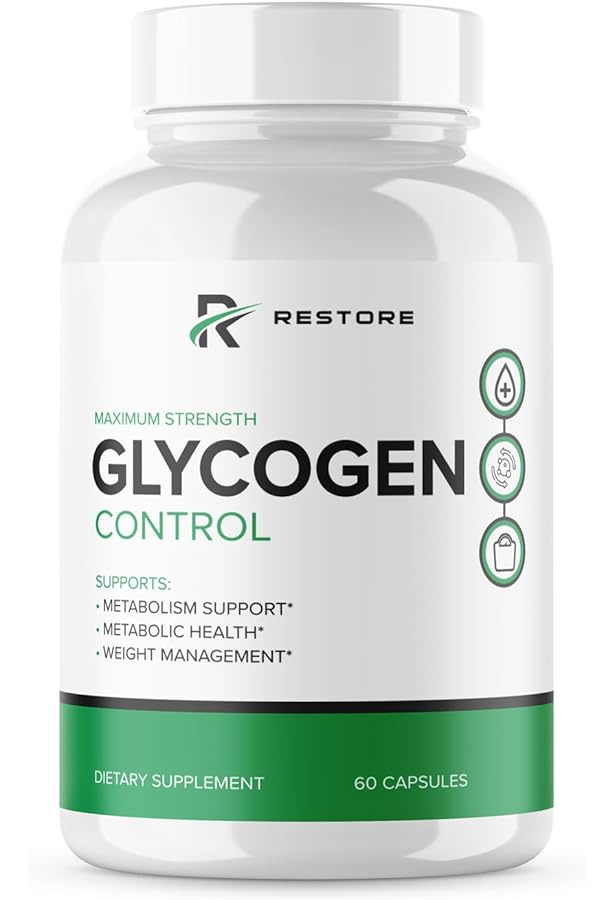Glycogen, often referred to as the body's "energy reserve," plays a crucial role in maintaining optimal energy levels throughout the day. It's a form of glucose storage primarily found in the liver and muscles, serving as a readily accessible source of fuel for the body. Understanding how to regulate and optimize glycogen levels is essential for sustaining energy, enhancing athletic performance, and promoting overall well-being. In this blog, we'll delve into the intricacies of glycogen control and explore practical strategies to master it effectively.
What is Glycogen and Why Does it Matter?
Before diving into glycogen control, let's grasp its significance. Glycogen is a polysaccharide—a complex carbohydrate—composed of glucose molecules linked together in a highly branched structure. It acts as a short-term energy reservoir, readily broken down into glucose when the body needs a quick boost of energy. Glycogen is crucial during physical activity and periods of fasting when glucose demand exceeds immediate supply from food intake.
The body synthesizes and stores glycogen primarily in the liver and skeletal muscles, with each playing distinct roles:
- Liver glycogen: Maintains blood glucose levels to support vital functions, including brain activity, during fasting or between meals.
- Muscle glycogen: Provides energy directly to muscles during physical activity, contributing to endurance and performance.
Regulating Glycogen Levels:
Effective glycogen control involves a balance between storage and utilization. Here's how you can optimize glycogen levels:
- Balanced Nutrition: Consuming a well-rounded diet rich in complex carbohydrates, healthy fats, and lean proteins supports glycogen replenishment. Focus on whole grains, fruits, vegetables, and lean meats to provide a steady supply of glucose for glycogen synthesis.
- Timing Meals: Strategically timing meals can influence glycogen storage. Consuming carbohydrates before and after workouts helps replenish muscle glycogen stores efficiently. Additionally, spacing out meals evenly throughout the day prevents fluctuations in blood glucose levels, supporting stable glycogen reserves.
- Carbohydrate Cycling: Athletes often employ carbohydrate cycling strategies, alternating between high and low carbohydrate intake based on training demands. This approach optimizes glycogen storage while promoting fat adaptation during low-carb periods.
- Adequate Hydration: Proper hydration is essential for glycogen metabolism. Dehydration can impair glycogen breakdown and utilization, leading to decreased energy levels and performance. Aim to drink enough fluids, especially during intense exercise or in hot environments.
- Exercise Regularly: Physical activity stimulates glycogen breakdown and enhances the body's capacity to store glycogen. Incorporate both aerobic and resistance training into your routine to maximize glycogen utilization and storage in muscles and liver.
- Monitor Blood Sugar: Keeping tabs on blood glucose levels helps gauge glycogen status and adjust dietary and exercise interventions accordingly. Continuous glucose monitoring or occasional blood glucose testing provides valuable insights into glycemic control.
- Rest and Recovery: Adequate rest is vital for glycogen replenishment and muscle repair. Prioritize quality sleep and incorporate rest days into your training regimen to optimize glycogen synthesis and recovery.
Benefits of Optimal Glycogen Control:
Mastering glycogen control offers numerous benefits beyond just energy management:
- Enhanced Performance: Optimized glycogen levels improve endurance, strength, and overall athletic performance, enabling you to push harder and achieve better results.
- Stable Blood Sugar: Balanced glycogen stores contribute to stable blood glucose levels, reducing the risk of energy crashes and mood swings.
- Improved Metabolic Health: Maintaining glycogen balance supports metabolic health, helping regulate appetite, promote weight management, and prevent insulin resistance.
- Increased Resilience: Efficient glycogen utilization enhances the body's ability to adapt to various stressors, whether physical, mental, or environmental.
Conclusion:
Glycogen control is a fundamental aspect of energy management and overall health. By adopting strategic dietary, exercise, and lifestyle practices, you can optimize glycogen levels to fuel your body effectively and sustain peak performance. Whether you're an athlete striving for athletic excellence or simply aiming to boost your daily vitality, mastering glycogen control empowers you to unlock your full potential and live life to the fullest.
https://getsfreetrial.com/glycogen-control/
https://www.pinterest.com/healthsolution149/glycogen-control/
https://www.tumblr.com/healthsolution01/746911278930460672/mastering-glycogen-control-your-key-to-optimal


No comments yet